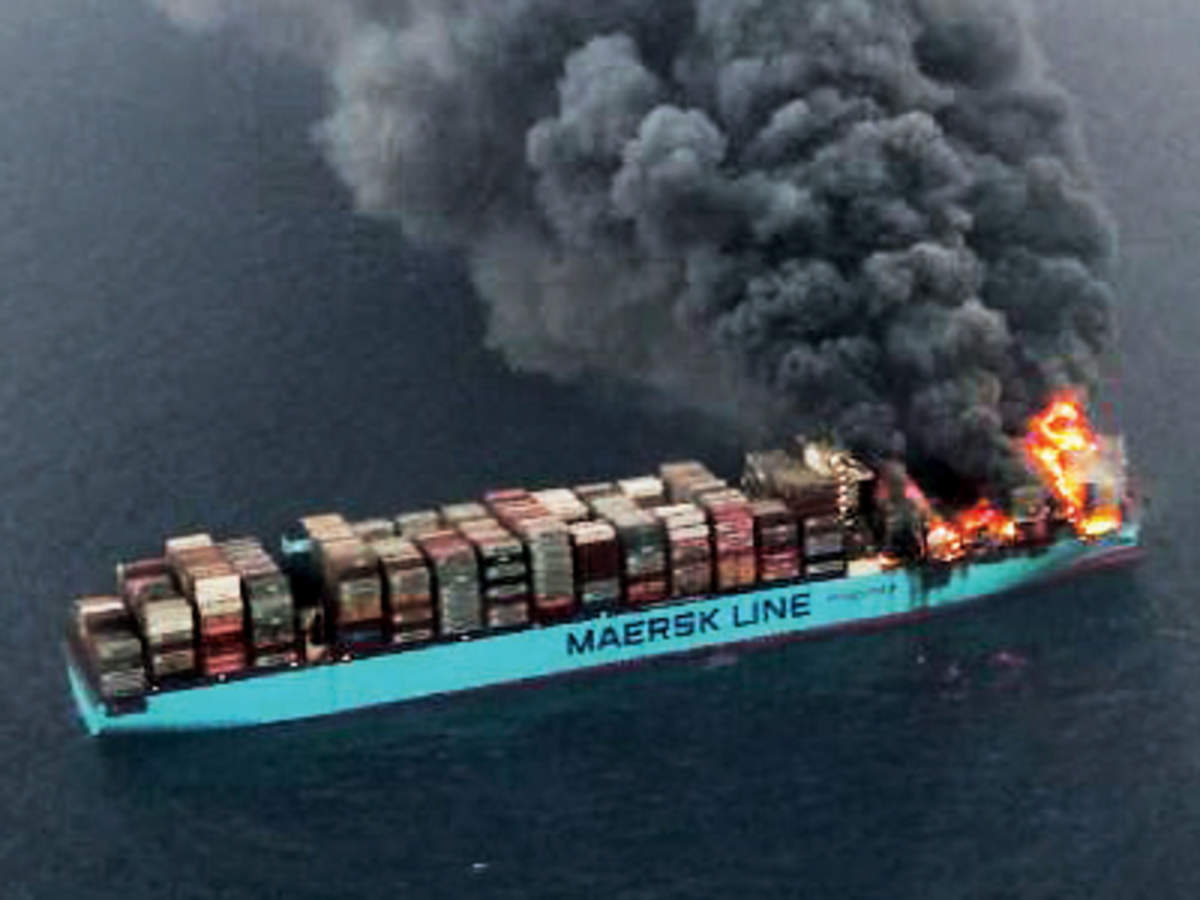
Missile and drone attacks by Houthi militia on merchant ships passing through the Red Sea and Gulf of Aden could trigger a global supply chain crisis.
The latest attack was reported today (15 December) on the Liberian-flagged 14,993 TEU container ship Al Jasrah, operated by Hapag-Lloyd, in the Red Sea. The vessel sustained damage from the missile attack as it was sailing through the Bab al-Mandab strait, causing a fire on deck and a container to fall overboard, said the British maritime security firm Ambrey.
Another attack was reported yesterday (14 December), when a missile was fired at the 10,100 TEU container ship Maersk Gibraltar. The missile did not strike the ship, which was sailing from the port of Salalah in Oman to the port of Jeddah in Saudi Arabia.
This follows a string of attacks including missile strikes on a Norwegian-flagged vessel in the Bab el-Mandeb Strait and a container ship operating between Asia and the Mediterranean. On 12 December, a vessel operated by shipping company Ardmore came under missile attack in the Red Sea.
Peter Sand, chief analyst at Xeneta, an ocean freight shipping data and intelligence platform, believes the situation could have serious consequences for global supply chains.
“All ships transiting the Suez Canal must sail through the Red Sea and Gulf of Aden and the Houthi militia has made clear that any vessel is a target. I do not believe the Suez Canal will close, however, if there are further significant escalations then we cannot rule it out, even if it is just for a few days,” he said.
Sand mentioned that a closure of the Suez Canal could have a severe impact on the global shipping industry, recalling the Ever Given incident and its consequences. “The ocean freight industry has been deeply scarred by Ever Given and is frankly terrified of any situation which threatens the closure of the Suez Canal,” he pointed out.
More than 50 vessels transit the Suez Canal every day, carrying billions of dollars of goods to North Europe, the Mediterranean and North America East Coast. Houthi militia in Yemen, which has stated sympathies with Hamas and according to the US Government, are being armed by Iran, has claimed the missile and drone attacks on merchant ships are in response to the conflict in Gaza.
With ongoing restrictions in the Panama Canal due to drought, the latest situation in Suez could not come at a worse time for the ocean shipping industry, according to Xeneta analysis.
Sand said, “We are already seeing ocean freight liner operators and owners choosing to reroute vessels away from the Red Sea and Gulf of Aden region. Due to the importance of the Suez Canal to global supply chains, even a small disruption can have big consequences.
“The main alternative is to sail around the Cape of Good Hope, which adds up to 10 days sailing time for services from Asia to North Europe and East Mediterranean.
“We may also see the cost of moving freight by ocean increase dramatically. Depending on the scale and duration of any disruption at the Suez Canal, we could see ocean freight shipping rates increase by anything up to 100%.”


No responses yet